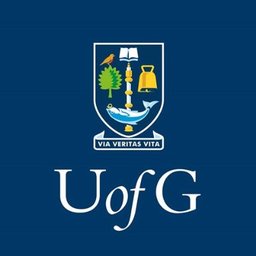Job Opportunities in United Kingdom

October 14, 2024
University of Glasgow
Glasgow
Demonstrator
Job Purpose
To demonstrate the use of practical equipment (including where relevant, software packages), experiments, exercises, techniques and/or processes that may form an element of an undergraduate course of study in line with specific learning objectives, set by others.
To oversee students carrying out such experiments, exercises etc and offer assistance as appropriate.
Main Duties and Responsibilities
1. Under supervision, to demonstrate and provide instruction to students (both small groups and one-to-one) in the use of practical equipment, conduct experiments, workshops and/or processes and to answer questions related to those demonstrations.
2. To assist/give guidance, where required, to students who are carrying out practical exercises.
3. To be aware of any health and safety implications, and take action to maintain a safe environment, raising any concerns with the course organiser.
4. To contribute to the development of teaching material and workbooks.
5. Where required, to assist in marking student tests set by the course organiser using defined marking criteria where marking requires little or no interpretation.
6. Where required, to provide factual feedback on student performance and any issues arising the course of the demonstration, to the course organiser.
7. Where required, to ensure that equipment is functional and/or material for demonstrations, exercises etc is prepared before the start of a session.
8. Engage in continuing professional development activities as appropriate.
9. Undertake any other reasonable duties as required by the Head of School.
10. To contribute to the enhancement of the University’s international profile in line with the University’s Strategic Plan.
Qualifications
Essential:
A1. SCQF Level 10 (Honours degree) in a relevant subject or a cognate discipline, or equivalent
Knowledge, Skills and Experience
Essential:
C1. Advanced knowledge of relevant subject
C2. Ability to assemble and use equipment (including, where relevant, software packages) relevant to the experiments, exercises and/or processes.
C3. Sufficient knowledge and skills to explain clearly the item, issue or technique being demonstrated with some requirement to match that to the needs of the specific group.
C4. Effective communication skills.
C5. Will usually hold a degree, or equivalent, relevant to the teaching area.
C6. Understanding of relevant health and safety procedures.
C7. Commitment to the University’s published values and professional behaviours.
Additional Information
Our School is committed to equality, diversity and inclusion. As we are a merging of two Athena Swan Silver award winning bodies (the School of Veterinary Medicine and the Institute of Biodiversity, Animal Health & Comparative Medicine) we aim to achieve an Athena Swan award for the School of Biodiversity, One Health & Veterinary Medicine
The award demonstrates our commitment to best practice in recruiting and supporting the career development and progression of female scientists, addressing gender inequalities in higher education. The Athena SWAN Charter recognises commitment to advancing gender equality in Science, Technology, Engineering, Maths and Medicine (STEMM) employment in academia. https://www.gla.ac.uk/schools/bohvm/athenaswan/
The College of Medical, Veterinary and Life Sciences was re-shaped to create 8 new Schools that bring staff together around thematic strengths, across the strategic pillars of education, research and innovation. More information on the College re-shape can be accessed here: MVLS 2025. The new College shape took effect from August 2022 and this post will be based in the School of Biodiversity, One Health and Veterinary Medicine.
http://www.gla.ac.uk/colleges/mvls/mvls2025/
We regret to inform you that this job opportunity is no longer available
Latest Job Opportunities



October 15, 2024
Hotel Co 51
Night Auditor (Night Crew Member) - MOXY Aberdeen Airport
Aberdeen
OTHER & FULL TIME
View Details
October 15, 2024
Hotel Co 51
Crew Member - MOXY Edinburgh Fountainbridge
Edinburgh
OTHER & PART TIME
View DetailsNew Jobs from This Company


October 14, 2024
University of Glasgow
Recruitment, Marketing & Admissions Administrator
Glasgow
FULL TIME
View Details
October 14, 2024
University of Glasgow
MBChB Teaching Administrative Assistant
Glasgow
FULL TIME
View Details
October 14, 2024
University of Glasgow
Lecturer (Research & Teaching)
Glasgow
FULL TIME
View Details